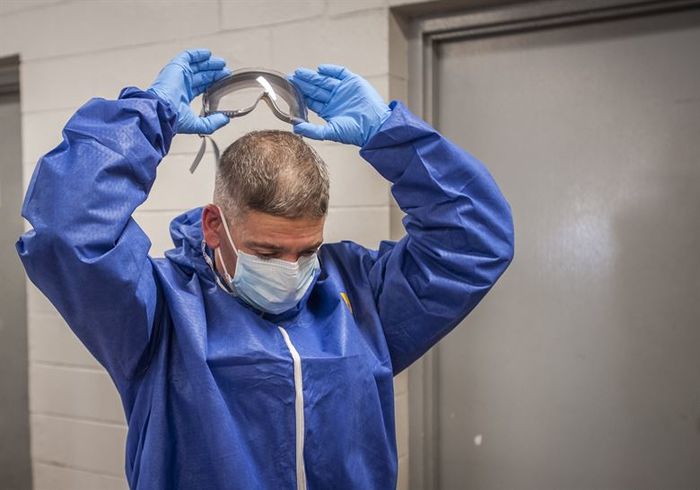Cambridge University gains Real Living Wage accreditation
The accreditation means staff of the University will receive a minimum hourly payment of £9.50

The University of Cambridge has been accredited as a Living Wage employer by the Living Wage Foundation.
The University’s new ‘Living Wage Commitment’ means that all staff will now receive a minimum rate of £10.85 in London and £9.50 per hour in the UK.
The Real Living Wage is calculated according to the basic cost of living in the UK and it provides a voluntary benchmark for employers "who wish to ensure their staff earn a wage they can live on, not just the government minimum". In comparison to the Real Living Wage, the national living wage, the government’s minimum pay for employees over 25, is £8.72.
Cambridge joins 71,111 accredited employers, including the University of Oxford, the University of Bristol, and companies including IKEA, Burberry, and Nestle, who already pay the Real Living Wage to their employers. The University also joins 281 companies in the East of England currently paying the Real Living Wage.
Eilís Ferran, Pro-Vice-Chancellor for Institutional and International Relations, expressed her delight at the accreditation, stressing that “Cambridge staff are at the heart of everything we do as one of the world’s top global research-intensive universities.”
She further detailed that the University’s “commitment ensures wages will never be lower than the independent benchmark set by the Living Wage Foundation.”
On the University’s accreditation, Laura Gardiner, Director of the Living Wage Foundation, commented: “We’re delighted that the University of Cambridge has joined the movement of 7,000 responsible employers across the UK who voluntarily commit to go further than the government minimum to make sure all their staff earn enough to live on.”
She continued: “In this difficult time, their commitment will help to give their staff the additional support they need to better support themselves and their families.”
The University agreed to seek accreditation from the Living Wage Foundation in a Grace submitted to Regent House on 7th February 2018. With the University voluntarily paying the Real Living Wage to direct employees since August 1st 2014, the Living Wage accreditation means the University is also now paying the Real Living Wage to those on contracts or subcontracts.
A Cambridge Living Wage was introduced in August 2019, although, unlike the Real Living Wage, this did not apply to subcontracted workers.
In a comment to Varsity, the Cambridge Students' Union's Ethical Affairs Campaign welcomed the "University’s decision to follow through with the commitment they made in 2018 and hope that, although long overdue, it represents a step towards a wider redistribution of funds across the University. " However, the Campaign added that "the cost of living in Cambridge is much closer to that of London, meaning £9.50 is not enough and they [the University] should be paying at least £10.85 per hour instead. "
The Campaign also highlighted that the "this victory belongs to staff and student campaigners" who have been pushing for accreditation at the central University and colleges for years.
The announcement of the University's accreditation follows criticism by the Cambridge Living Wage Campaign (CLWC) last year, who reprimanded the University for its lack of responsibility towards staff during the pandemic, calling for the institution to be more transparent around worker safety and compensation during lockdown.
In response to the Job Retention Scheme, under which furloughed employees would have 80% of their wages paid by the government, CLWC also emphasised that colleges should provide the additional 20%, considering it essential for workers to be able to afford basic necessities.
In this regard, the Ethical Affairs Campaign stated that the "University must also reverse any hiring or promotion freezes and commit to no redundancies during the pandemic period."
The Living Wage accreditation only applies to the University - colleges function as separate legal entities to the University, with financial autonomy, and therefore, must individually receive the Living Wage accreditation. So far, Queens' and Girton, as well as Selwyn, have received accreditation.
Speaking to Varsity the Ethical Affairs Campaign called on the University to use "its influence to encourage colleges, which employ hundreds and hundreds of staff members, to commit to being Living Wage accredited too. The Living Wage Campaign’s 2019 ‘Living Wage Table’ demonstrated that very few colleges are currently paying the living wage."
The Campaign continued: "Moreover, the huge wealth gap between Cambridge’s management staff and their lower paid workers still needs to be addressed if the University truly wants to support their workers. So this is a welcome step in the right direction, but we would urge the university to go much further in demonstrating its support for workers’ job security in these other areas as well."
The Living Wage movement has led to a pay rise of 250,000 UK employees since 2011, translating to more than £1.3 billion.
Cambridge UCU was contacted by Varsity for comment.
 Comment / Cambridge’s tourism risks commodifying students18 April 2025
Comment / Cambridge’s tourism risks commodifying students18 April 2025 News / Cambridge student numbers fall amid nationwide decline14 April 2025
News / Cambridge student numbers fall amid nationwide decline14 April 2025 News / Greenwich House occupiers miss deadline to respond to University legal action15 April 2025
News / Greenwich House occupiers miss deadline to respond to University legal action15 April 2025 Comment / The Cambridge workload prioritises quantity over quality 16 April 2025
Comment / The Cambridge workload prioritises quantity over quality 16 April 2025 News / Varsity ChatGPT survey17 April 2025
News / Varsity ChatGPT survey17 April 2025






